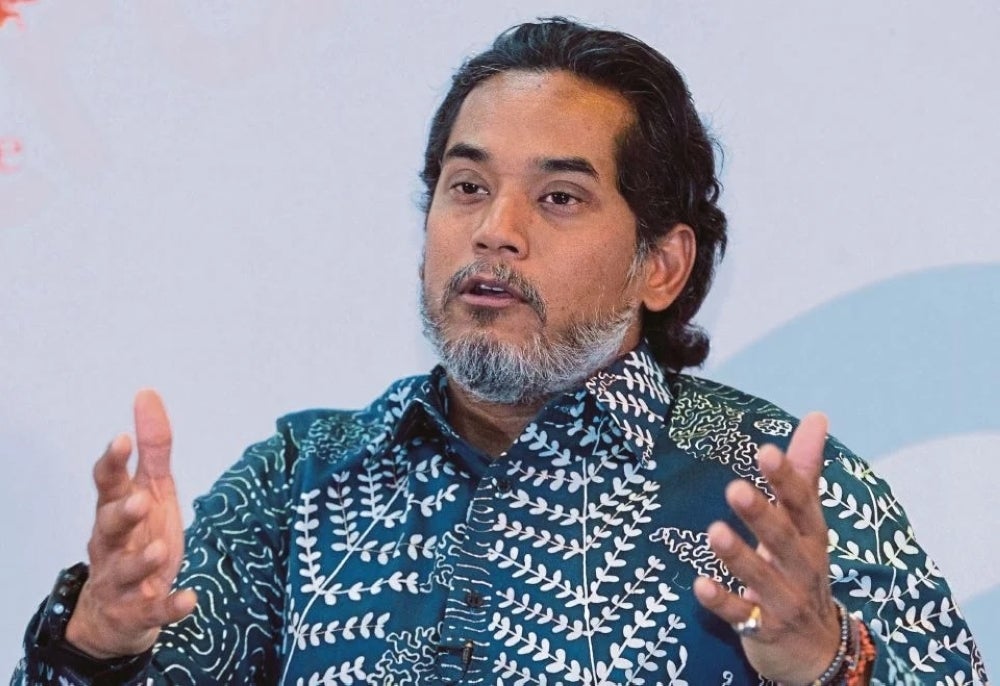Khairy wrong to suggest govt caused, can solve depreciation of ringgit - Economist

SHAH ALAM - Former Umno youth leader Khairy Jamaluddin is wrong to suggest the government caused or can solve the depreciation of the ringgit, for example is purely to do with international developments outside of the control of Malaysia, says an economist.
Malaysia University of Science and Technology (MUST) Provost for Research and Innovation economist professor Geoffrey Williams said the economy faced headwinds from international factors which had been forecasted from the start of the year, even before Datuk Seri Anwar Ibrahim became Prime Minister.
“Since taking over, there have been plenty of very positive initiatives and we are in a much better situation under Anwar as Finance Minister.
“Inflation is dropping, growth is more stable and the economy and the financial markets are calmer now as Anwar is well known and well respected immediately with a reputation for sound economic policy,” he said when contacted.
Williams added that Anwar’s idea for an Asian Monetary Fund had been well received.
“International engagements headed by Anwar have secured RM750 billion in foreign investment opportunities which must be tapped as quickly as possible.
“Domestically, Budget 2023 opportunities were more pragmatic than populist with many initiatives that show Anwar’s administration is moving away from the subsidy dependency toward economic reform,” he said.
He said the move to freeze utility tariffs would benefit millions of households and 98 per cent of firms which would hold down price increases and aid in slowing inflation this year.
“It has saved RM4 billion and can save another RM4 billion this year,” he told Sinar Daily.
Williams added rescheduling and retendering development projects had identified billions of ringgit in savings and overall development spending had increased.
“Addressing corruption has identified an RM10 billion leak in diesel fraud which can now be stopped and stopping projects introduced under the Jana Wibawa has saved RM7.2 billion in one ministry alone.
“Addressing supply side issues and easing import restrictions in food to open up the market helps improve supplies and will help keep prices low.
“Inflation rate is dropping and will head towards 2.5 per cent in the second half of the year.
“There is a clear series of policy initiatives that will have a positive impact in the short-term while beginning the process of long-term structural reforms,” he expressed.
On the other hand, Universiti Malaya (UM) Faculty of Business and Economics honorary professor Mohd Nazari Ismail said the country’s problems, especially the high cost of living were mainly due to the debt-based system.
“Right now, banks create money out of thin air to lend to borrowers and that is why the cost of living is also high in other developed countries.
“In fact, Singapore is worse compared to us, which leads to many Singaporeans choosing to stay in Johor and commute to work and as long as this debt-based system remains in place, with banks lending massive amounts monthly, the problem will always be with us.
“So there is no short-cut solution to the problem,” he said.
He added the long-term solution required Malaysia to shift from debt-based economic systems but it would require a change in values among society members.
“Politicians are unwilling to consider this alternative because they will not survive politically.
“In the meantime, the opposition will use the situation to attack the government even though they will also be unable to solve the problem when they are back in power.
“So, the cycle will repeat itself as long as the system remains unchanged,” he said.
Meanwhile, veteran economist Ramon Navaratnam agreed with Khairy’s statement and said that the green wave was real and had expanded which could be seen through increased abuse of the race, religion, royalty (3R) issues than before.
“Let’s be frank, Anwar has set a clear economic direction, but it should be deepened with fundamental reforms.
“What is lacking are the strong structural reforms, but the timing for real changes is right, and will Khairy support measures to reduce the New Economy Policy (NEP) abuses,” he said.
Recently, Khairy told a Singaporean portal that Anwar’s struggle to gain Malay support was not due to ‘green wave’ brought by Perikatan Nasional but his administration’s lack of economic direction.
He said that over the last seven month, there had been a clear lack of economic direction, adding that the ringgit continues to weaken and the cost-of-living crisis continues to erode the people’s purchasing power.
Download Sinar Daily application.Click Here!















